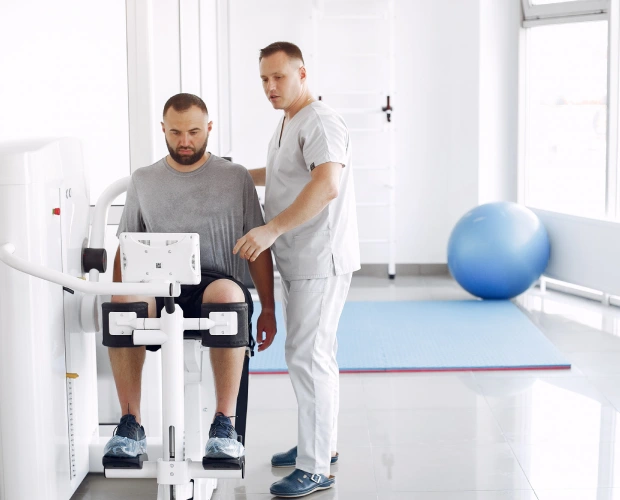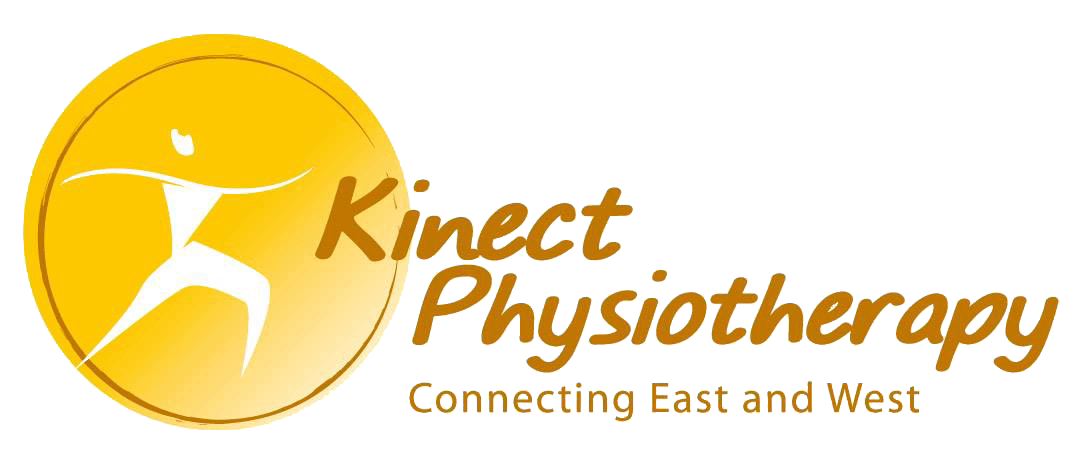Physiotherapy

What is Physiotherapy?
How does it work ?

Joint mobilisation
A manual therapy where therapists apply “a continuum of skilled passive movements to the joint complex” at varying speeds.
Therapeutic exercise and stretches
Physical activities prescribed to achieve improved respiratory capacity, improved coordination, improved mobilisation of joints, improved balance, improved circulation, improved muscle strength and to release contracted muscles, tendons and fascia.
Soft tissue massage
Technique that involve direct physical action on muscles, ligaments, tendons, fascia or other soft tissues on the body. It helps improve blood circulation, quicken healing time of muscular tissues and strained ligaments, and helps in relaxing muscles.

Taping
Strapping tape and Supportive taping is commonly used by physiotherapists to:
- Relieve your pain
- Improve joint stability
- Enhance athlete confidence
- Reduce injury recurrence
- Prevent injury
- stabilise or support the injury
- pain-relief via a de-loading of the vulnerable or painful structures
- or to facilitate normal movement, muscles or postural patterns

Breathing exercises and techniques
Controlled breathing helps de-stress us by promoting calmness and relaxation. It keeps the mind and body functioning efficiently and helps lower blood pressure.
Electro Physical agents
These are composed of hot packs, cooling agents and ultrasound.
Get In Touch With Us
Google Reviews
EXCELLENTTrustindex verifies that the original source of the review is Google. Tony 非常專業 非常有經驗 和善且有耐心Posted onTrustindex verifies that the original source of the review is Google. Would recommend Fiona Eastgate she is so caring and has always helped me . The staff are so helpful and friendly.Posted onTrustindex verifies that the original source of the review is Google. Great service. Got my hand treated here.Posted onTrustindex verifies that the original source of the review is Google. The whole Kinect team are friendly and wonderful. Sabrina is a fantastic physio including acupuncture. She works wonders.Posted onTrustindex verifies that the original source of the review is Google. Love this physio . They are all so friendly and helpful . They have all gone above and beyond to help me since I've started coming to see fiona . Highly recommend fiona and kinect .Posted onTrustindex verifies that the original source of the review is Google. Sabrina is great and always happy with her professionalism and service! Thank you all. You are a great teamPosted onTrustindex verifies that the original source of the review is Google. Very positive treatment. I have had Tony look after my condition for well over 15 years on a regular basis. I could not be happier with his treatment & have him to thank for making a progressive & difficult condition managable & most bearable. I have great praise for Tonys knowledge & care; recommending him to many friends & familyPosted onTrustindex verifies that the original source of the review is Google. Can't say enough for what Toni does for my back would recommend kinect physiotherapy to my family and friendsPosted onTrustindex verifies that the original source of the review is Google. WowWowWow Best ever After my visit What a relief !!


